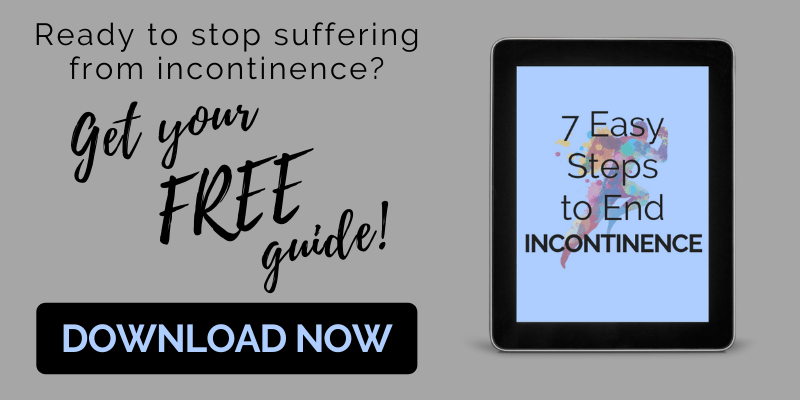Sparkling Water & Your Bladder: Does the fizz make you whiz?
Are you a sparkling water lover like me? I can’t get enough of the tiny bubbles and refreshing flavors! In fact, as I write this post, I find myself enjoying delicious pineapple strawberry sparkling water. But did you know that your sparkling water (a bladder irritant) could lead to the pesky leakage you’ve probably been told is “just a part of being a mom”?
I began my motherhood journey 5 months ago. And since then, I have truly experienced the effects my beloved fizzy drink can have on my bladder. Prior to pregnancy, I could slam back a few sparkling glasses of water in a row and think nothing of it. But ever since the events of pregnancy and childbirth wreaked havoc on my pelvic floor, I find myself with a stronger urge and more frequent need to pee after consuming a tasty LaCroix.
Download our FREE guide, "7 Easy Steps to End Incontinence"
How Sparkling Water Affects the Bladder
But I thought sparkling water was supposed to be healthy.
Yes, sparkling water is a much healthier option when looking for something other than plain water. It can be a great alternative to soda or sports drinks since it doesn’t contain all the refined sugar, additives, or artificial sweeteners. However, sparkling water can still cause some of the same bladder issues as soda simply because of the carbonation. The carbonation in the water is considered a bladder irritant. This means that the bladder doesn’t like to hold onto this type of liquid and will attempt to rid itself of these contents at any chance. Other common bladder irritants include caffeine, alcohol, highly acidic liquids/foods, and items containing artificial sweeteners. Basically, anything that isn’t water has the potential to irritate the bladder.
So should I stop drinking my beloved Spindrift?
No! I am someone who likes variety. And I know that if I only have plain water to drink throughout the day, I will not drink enough to be well-hydrated. So I’m not telling you to give up the fizz altogether. Instead, it’s important to be aware of any incontinence symptoms when you consume bladder irritants. It's important to know that when you consume an irritant, your bladder doesn’t like to hold onto the liquid that is bothering it, so leakage is more likely to happen. You may also find that you need to urinate more frequently until your body rids itself of this irritant. You can lessen the effect on your bladder by diluting its contents. Drink water at the start of each day and after consuming a bladder irritant like sparkling water.
Bladder Norms
Urinating 6-8 times daily, about every 3-4 hours, is normal. However, you should not need to run to the bathroom to make it on time, and you shouldn't find yourself leaking on the way to the bathroom. It’s also important to note that it’s NOT normal to have leakage, even after having a baby! Be sure you are staying hydrated, as dehydration can lead to more leakage. Here is a guideline to know if you’re drinking enough water: aim to drink half your body weight in ounces of fluid per day. Plus, at least 2/3 of the beverages you consume each day should be water!
Physical Therapy Can Help!
If you have issues with leakage during activity, have difficulty making it to the bathroom on time, or your bladder doesn’t seem the same since having a baby, physical therapy can help! A pelvic floor physical therapist can help determine exactly why you are experiencing incontinence and how to fix it quickly. Remember, while it might be common for women to have bladder issues, it's not something you have to deal with. If you’re tired of peeing your pants every time you run, jump, cough, or indulge in a Bubly, download our FREE guide, 7 Easy Steps to END Incontinence, to get started right away!


